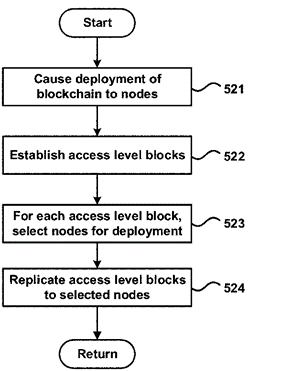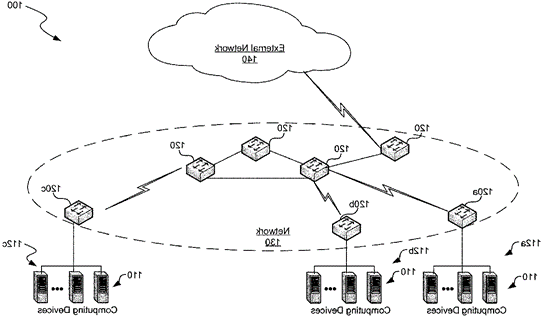Initially, when it debuted in 2009, the buzz about blockchain-primarily revolved around its uses in the financial services industry. Later, it swept its way into various industries due to its transparency and security pillars in a zero-trust environment. Currently, the use of blockchain is limited to the start-up domain and has spread to well-established financial institutions. This technology has a staggering CAGR rate of over 69% between 2019 to 2025. Despite such promising development, significant companies like Google, Facebook, and Apple have held back from this technology. The biggest revolution of this technology is that it ensures provenance. To put it plainly, it validates that something was done at a certain point in time. This unleashes the power to avoid corruption and unlock more collaboration and value potential.
Blockchain has grown into one of the most failsafe systems of dealing in the digital network space while not being indestructible. The technology has been praised for ensuring information integrity when used as intended. Many companies have invested in blockchain research and come up with solutions to meet their business requirements.
To begin with, let's see what FAGMA companies have contributed to this field.
MICROSOFT
Microsoft is one of the most supportive corporations when it comes to cryptocurrencies. Microsoft had started accepting Bitcoin payments on its website in 2014 when almost no one had even heard of cryptocurrencies. Microsoft has some 40 patents related to Blockchains as payment gateways and for secure storage. Bill Gates and several of his non-profit organizations have looked at Blockchains to improve their organization's workings.
Among the many Blockchain patents filed by Microsoft, the one which highlights security at its core is " Establishment of a confidential blockchain network- US-10922425-B2" and "Proof of ticket consensus processing on a confidential blockchain network - US20200089895A1".
Microsoft filed a patent in the USA in 2018 for the 'Establishment of a confidential blockchain network,' which was published in 2021.
In this patent, a permissioned blockchain is caused to be deployed to nodes. Unable to store a nano block (encrypted database), access level blocks are established. The access level blocks include access level blocks for users, including security credentials for the user. For each access level block: nodes are selected for the deployment block and are replicated to each of the selected nodes. There are at least two copies of each access level block on the permissioned blockchain, and it is capable of performing cryptographic operations.

Microsoft USA filed another patent in 2018 for the 'Proof of ticket consensus processing on a confidential blockchain network,' which was published in 2020.
In this patent, each node communicates a transaction in a permissioned blockchain that stores an access level block corresponding to a user. At each node associated with the transaction, a real-time determination is made to verify the security credentials for the transaction. In response to generating a consensus among each node, approval for the transaction is provided. At each access level block in the permissioned blockchain, cryptographic details are stored as a nanoblock in the access level block.

AMAZON
Amazon has listed "thousands of banned, unsafe, or mislabeled products" with fake certifications, which led its inclination towards a Patent for a blockchain system that would allow "verifiable tracking of an item through a supply chain using a distributed electronic ledger." The patents "Blockchained-backed device and user provisioning - US-10581847-B1" and "Granting and securing ownership of cross-application digital assets - US-10946291-B1" also reflect the security implementation of blockchain.
In "Blockchained-backed device and user provisioning."
Distributed computing and storage systems and services are not necessarily under complete control of the implementing user or enterprise. The integrity of transactions made in addition to that can be challenging to ascertain. In such scenarios, the cryptographic method for authenticating the identity of the connecting users and/or devices may be implemented. However, it can be challenging to detect attackers in a diffuse environment.
In " Granting and securing ownership of cross-application digital assets," a blockchain-based approach is made for granting and securing cross-application digital assets. In Current games, the players don't truly own the loot earned, but this development will allow digital assets to be transferred between multiple applications, which multiple developer entities may offer.
Experts believe Facebook could use blockchain technology to enhance privacy for the billions of people on its platform on any given day on the privacy and data fronts. For instance, blockchain could be employed to prove a person's identity and could be used to provide users with more control over their data. Facebook could create contracts that stipulate who can receive information on the platform. Working on this, Facebook announced it was making the team study how the blockchain technology behind bitcoin can be used in developing new products.
APPLE
In August 2017, Apple filed a patent for a blockchain-based timestamp verification system. Electronic trading systems can't function without timestamps, and network administrators rely on timestamps to locate and fix problems. If timestamps are stored on a blockchain, the network will recognize when an intruder tries to alter a timestamp, creating unauthorized blocks that the network would not validate. Instead, the network would reauthenticate the proper timestamp.
Google filed a blockchain patent application focusing on securing information stored in the cloud, even as it expresses a strong dislike for Bitcoin and other cryptocurrencies. The search engine giant is looking forward to using blockchain to record signatures and verify the data stored in their databases.
To do so, they will utilize a "tamper-evident log." The application uses two blockchains – the first one contains signatures, and the second one stores the information verified by the signature.
Another giant in blockchain research is IBM.
In 2020, IBM made significant strides toward bringing blockchain into the mainstream by focusing on the benefits it offers enterprise users. Those virtues include connecting with a broader range of partners to share data across secure networks built on trust and transparency.
It can be noted that, through applications such as nonfungible tokens, record-breaking investment, and market capitalization, 2021 has given the blockchain market a fresh lease of life.
With that being said, market activity and excitement, on the other hand, draw more than just headlines and enthusiastic adopters. There is a rising extent of current cybersecurity concerns and the unique hazards that decentralized systems might permit. Also, blockchain penetration is still relatively low. This is, in part, because it's still tough to use. As I've covered before, blockchain-based development is still relatively inaccessible.





